When Breath Becomes Air
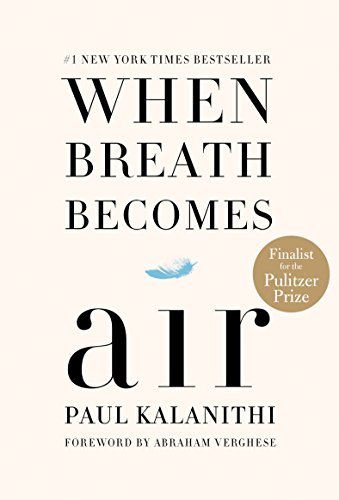
from amazon.com
At the age of thirty-six, on the verge of completing a decade’s worth of training as a neurosurgeon, Paul Kalanithi was diagnosed with stage IV lung cancer. One day he was a doctor treating the dying, and the next he was a patient struggling to live. And just like that, the future he and his wife had imagined evaporated. When Breath Becomes Air chronicles Kalanithi’s transformation from a naïve medical student “possessed,” as he wrote, “by the question of what, given that all organisms die, makes a virtuous and meaningful life” into a neurosurgeon at Stanford working in the brain, the most critical place for human identity, and finally into a patient and new father confronting his own mortality.
What makes life worth living in the face of death? What do you do when the future, no longer a ladder toward your goals in life, flattens out into a perpetual present? What does it mean to have a child, to nurture a new life as another fades away? These are some of the questions Kalanithi wrestles with in this profoundly moving, exquisitely observed memoir.
Paul Kalanithi died in March 2015, while working on this book, yet his words live on as a guide and a gift to us all. “I began to realize that coming face to face with my own mortality, in a sense, had changed nothing and everything,” he wrote. “Seven words from Samuel Beckett began to repeat in my head: ‘I can’t go on. I’ll go on.’” When Breath Becomes Air is an unforgettable, life-affirming reflection on the challenge of facing death and on the relationship between doctor and patient, from a brilliant writer who became both.
https://www.amazon.com/When-Breath-Becomes-Paul-Kalanithi-ebook/dp/B00XSSYR50
Author: Paul Kalanithi
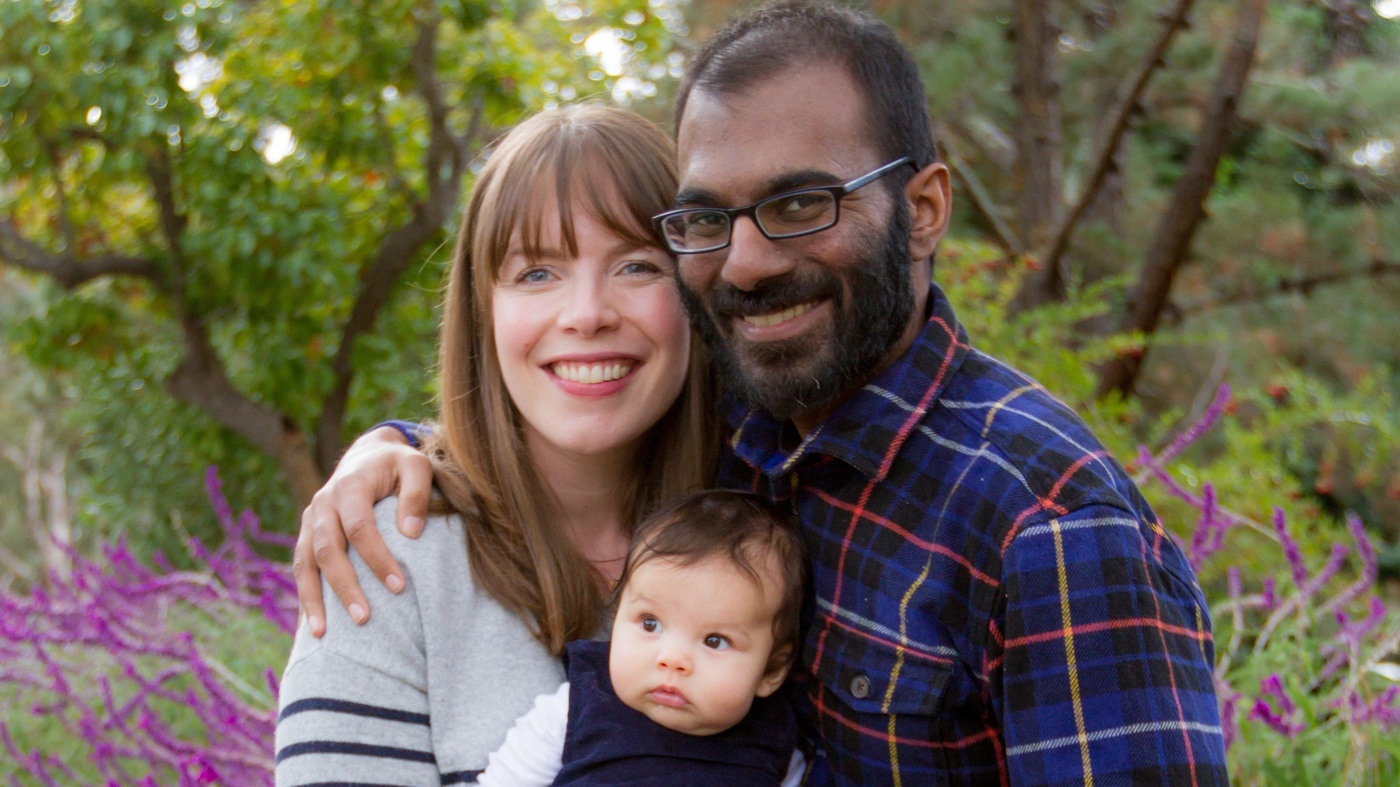
Reviewed by: Wendy Jane Carrel
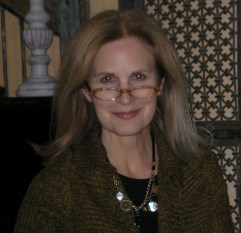
I work with health and mental health authors as a book shepherd and marketing person. Other than subjects of physical and emotional pain (and how they possibly correlate with one another), I am most interested in the subject of facing end-of-life.
The most meaningful book I read in 2016, and obviously the most noteworthy to many others according to the NY Times best-seller list, was Dr. Paul Kalinthi’s intelligent, poetic When Breath Becomes Air. It is about how he, a young neurosurgeon who receives a diagnosis of terminal lung cancer, chooses to live and share his last days.
The Spanish translation in Mexico is entitled The Good Doctor which makes it sound egocentric and uninteresting, though translators would argue with me that the original title would never sell in the country, and they may be correct. I still prefer the original title and what it telegraphs.
In any event, I urge all appreciators of fine writing to discover When Breath Becomes Air. It makes two important points – we never know when our days in this lifetime might pass, and, if we can, prepare for that day in the most sacred way possible.
Reviewed by: John Stokdijk
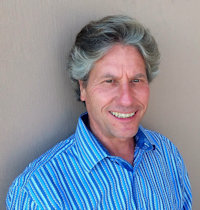
If someone were to ask me for some advice on how to prepare for retirement, I can now reply “Read When Breath Becomes Air by Paul Kalanithi.” However, all who read it can heed its central message no matter their age. The advice given by Kalanithi is simple but its force comes from his own heartbreaking story. He faced his own untimely death with remarkable courage and teaches us how we should live no matter what our circumstances. I think his message is particularly applicable to those of us who are retired, living the final chapter of our lives and having our last opportunity to be inspired by Kalanithi’s sage advice.
Paul Kalanithi was very well educated. He earned degrees in English literature, philosophy and science and then pursued a career as a neurosurgeon with hopes of also becoming a neuroscientist. His unique combination of education, life experience and obvious intelligence is manifested in the words of wisdom captured in his remarkable book.
Kalanithi chose to confront one of life’s most difficult questions well before he was forced to do so by his own diagnosis.
I had spent so much time studying literature at Stanford and the history of medicine at Cambridge, in an attempt to better understand the particularities of death, only to come away feeling like they were still unknowable to me.
... the unbearable, unjust, unexpected presence of death… What possible sense could be made… How could I ever learn to make, and live with, such judgment calls? I still had a lot of practical medicine to learn, but would knowledge alone be enough, with life and death hanging in the balance? Surely intelligence wasn’t enough; moral clarity was needed as well. Somehow, I had to believe, I would gain not only knowledge but wisdom, too.
I began to realize that coming in such close contact with my own mortality had changed both nothing and everything. Before my cancer was diagnosed, I knew that someday I would die, but I didn’t know when. After the diagnosis, I knew that someday I would
die, but I didn’t know when. But now I knew it acutely. The problem wasn’t really a scientific one. The fact of death is unsettling. Yet there is no other way to live.
As I read these words I reflected on our community at Lakeside, a retirement community. One does not live here for very long before being confronted by the deaths of neighbours and acquaintances. Yet most of us live with this uncomfortable reality quite successfully.
The tricky part of illness is that, as you go through it, your values are constantly changing. You try to figure out what matters to you, and then you keep figuring it out… You have to figure out what’s most important to you.
Successful retirement comes by once again discovering what we value, what matters to us and what is important to us and bringing our lives into alignment as necessary.
Although deeply grounded in science, Paul Kalanithi was able to see far beyond its limitations:
Science is based on reproducibility and manufactured objectivity. As strong as that makes its ability to generate claims about matter and energy, it also makes scientific knowledge inapplicable to the existential, visceral nature of human life, which is unique and subjective and unpredictable. Science may provide the most useful way to organize empirical, reproducible data, but its power to do so is predicated on its inability to grasp the most central aspects of human life: hope, fear, love, hate, beauty, envy, honor, weakness, striving, suffering, virtue.
Here are some more bits of wisdom from Paul Kalanithi:
The angst of facing mortality has no remedy in probability.
I knew that our identities derive not just from the brain, I was living its embodied nature.
Maybe, in the absence of any certainty, we should just assume that we’re going to live a long time. Maybe that’s the only way forward.
… to make science the arbiter of metaphysics is to banish not only God from the world but also love, hate, meaning— to consider a world that is self-evidently not the world we live in.
No system of thought can contain the fullness of human experience.
In the end, it cannot be doubted that each of us can see only a part of the picture.
The Epilogue was written by Lucy Kalanithi and comes upon us much too suddenly. I suspect most readers will do as I did, read it with tears running down my cheeks. Her words are as powerful as his.
PAUL DIED ON MONDAY, March 9, 2015… our daughter, Cady, had entered the world eight months before.
This book was published in 2016 and was on The New York Times bestseller list for 66 weeks. It was on several lists of best books of the year. Paul Kalanithi wanted to leave a legacy and indeed he has.
There are several excellent videos available on the web which make this story even more real:
NBC Bay Area's Raj Mathai sits down with Stanford neurosurgeon, Dr. Paul Kalanithi, who faced an uncertain future with a lung cancer diagnosis. Dr. Kalanithi wrote a moving and personal essay in the New York Times, which resonated with thousands of people.
What makes life worth living in the face of death
In this deeply moving talk, Lucy Kalanithi reflects on life and purpose, sharing the story of her late husband, Paul, a young neurosurgeon who turned to writing after his terminal cancer diagnosis. "Engaging in the full range of experience -- living and dying, love and loss -- is what we get to do," Kalanithi says. "Being human doesn't happen despite suffering -- it happens within it."
This video was produced by TEDMED. TED's editors featured it among our daily selections on the home page.
Jeevan Kalanithi @ 5x15 - When Breath Becomes Air
Jeevan Kalanithi is a technologist, entrepreneur and brother of Paul Kalanithi, whose posthumous memoir When Breath Becomes Air is shortlisted for the Wellcome Book Prize 2017.
Comments
8 years ago — Wendy Jane CarrelThank you John for your careful and heartfelt contribution about Paul Kalinthi, his wisdom, and the comments about his wife Lucy.
8 years ago — John StokdijkThank you to Paula Whittingham for providing the following link to a book review from The Washington Post which also includes a link to another excellent video of Paul Kalanithi. ‘When Breath Becomes Air’: Young doctor’s last words of wisdom, hope https://www.washingtonpost.com/entertainment/books/when-breath-becomes-air-in-a-young-doctors-final-words-wisdom-and-hope/2016/01/08/aa5a8402-b60e-11e5-9388-466021d971de_story.html?tid=kp_google&utm_term=.74cac308f28f
8 years ago — John StokdijkHere is a link to The New York Times essay by Paul Kalanithi, published on Jan. 24, 2014. https://www.nytimes.com/2014/01/25/opinion/sunday/how-long-have-i-got-left.html
Reviewed by: Karl Homann
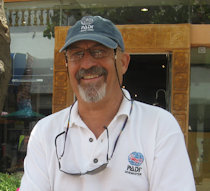
When our book club chose Paul Kalanithi’s book When Breath Becomes Air as our November reading, I was not sure that I wanted to read it. Now that I have, I am glad I did.
What made me change my mind first, were the intelligent literary references in Dr. Kalanithi’s book to emphasize his points of view in this diary of love and loss; his knowledge of literary works and authors which I, as a literature major, also loved. Then it was the understanding of his role as a physician in the lives of his seriously and often terminally ill patients: the personal interest he took in their lives and how the illness they faced affected them, not just the technicalities of the delicate brain operations he had to perform, something at which he certainly excelled. And finally, the courage with which he faced his own mortality that stared at him from the scans and lab tests. My literary interest turned to empathy for the person, a knowledgeable physician turned needy patient, a step that understandably took some effort on his part.
In a society that avoids talking about or finds more pleasant words to name what expects us all at the end of life, Dr. Kalanithi’s story is one of courage and honesty. There are no euphemisms in this story, no pretense that the hard stuff isn’t hard and messy. We do not “pass”; we die!
The epilogue of the book, written by Lucy, Paul Kalanithi’s wife, and her moving TED Talk “What makes life worth living in the face of death” are the perfect compendium to her husband´s book and their love. As she points out, even in the face of unavoidable death, we DO have a choice about the quality versus the quantity of the remaining moments of our life if we make, as her husband did, end-of-life decisions that match our own values.
"Engaging in the full range of experience -- living and dying, love and loss -- is what we get to do. Being human doesn't happen despite suffering -- it happens within it."
Karl Homann
Comments
8 years ago — Wendy Jane CarrelThank you Karl for your appreciation of this book and the fine critique, or rather praise, that you wrote.
8 years ago — Wendy Jane CarrelThank you Karl for your appreciation of this book and the fine critique, or rather praise, that you wrote. - Wendy
